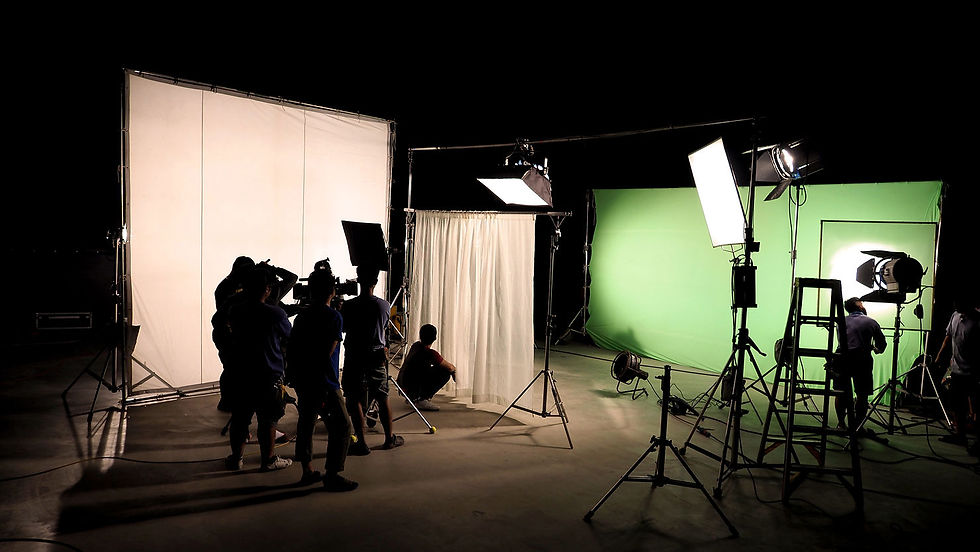The Importance of Mental Health Support for Actors and Production Teams- On Set Therapy
- Shawnessa Devonish- Ford LCPC, NCC
- May 25, 2024
- 2 min read
Updated: Jun 14, 2024
Mental Health Support from an On- Set Therapist
In the fast-paced and high-pressure world of film and television, mental health support for actors and production teams is essential. The lack of consideration for mental health can negatively impact the creative process and delay production, leading to costly setbacks. To maintain a healthy, productive working environment, it's crucial to implement strategies that prioritize mental well-being, including on-site therapy services.
The Impact of Poor Mental Health on the Creative Process
Actors and production team members often work long hours under intense pressure to deliver high-quality performances and meet tight deadlines. Without adequate mental health support, these stressors can lead to burnout, anxiety, and depression. When mental health suffers, so does creativity and productivity.
Reduced Creativity: Mental health issues can stifle creative thinking and hinder actors' ability to deliver authentic performances.
Decreased Productivity: Anxiety and depression can reduce motivation and focus, causing delays in production schedules.
Increased Absenteeism: Mental health struggles can lead to increased sick days and absenteeism, further delaying production timelines.
Strategies to Support Mental Health in the Industry
To foster a mentally healthy environment, production companies should implement comprehensive mental health strategies. Here are some effective approaches:
1. On Set Therapy Services
Providing On Set Therapist services offers immediate support for actors and crew members. On-Set therapists can:
Offer Confidential Counseling: Provide a safe space for individuals to discuss their mental health concerns without fear of stigma or judgment.
Address Issues Promptly: Help manage stress, anxiety, and other issues before they escalate into more severe problems that could impact production.
Develop Coping Strategies: Equip individuals with tools and techniques to handle the pressures of the industry effectively.
2. Mental Health Workshops
Regular mental health workshops can educate the team on the importance of mental well-being and teach practical strategies for managing stress.
Stress Management Techniques: Introduce mindfulness, meditation, and relaxation exercises that can be used on and off set.
Resilience Building: Teach resilience-building techniques to help team members bounce back from setbacks more effectively.
3. Flexible Scheduling
Creating a flexible and humane schedule can reduce stress and prevent burnout.
Adequate Breaks: Ensure that actors and crew have adequate breaks between scenes and during long shooting days.
Reasonable Working Hours: Avoid excessively long working hours and provide time off to recharge and relax.
4. Supportive Environment
Fostering a supportive work environment where mental health is openly discussed and prioritized can make a significant difference.
Open Communication: Encourage open communication about mental health and create a culture where seeking help is normalized.
Peer Support: Implement peer support programs where team members can offer each other encouragement and understanding.
Conclusion
The mental health of actors and production teams is vital for maintaining a productive and creative working environment. By recognizing the impact of poor mental health on the creative process and taking proactive steps to support well-being, production companies can ensure smoother, more successful projects. Strategies like on-site therapy services, mental health workshops, flexible scheduling, and fostering a supportive environment are essential components of a comprehensive mental health plan. Prioritizing mental health not only enhances individual well-being but also leads to more efficient and effective production processes, benefiting everyone involved in the industry.




Comments